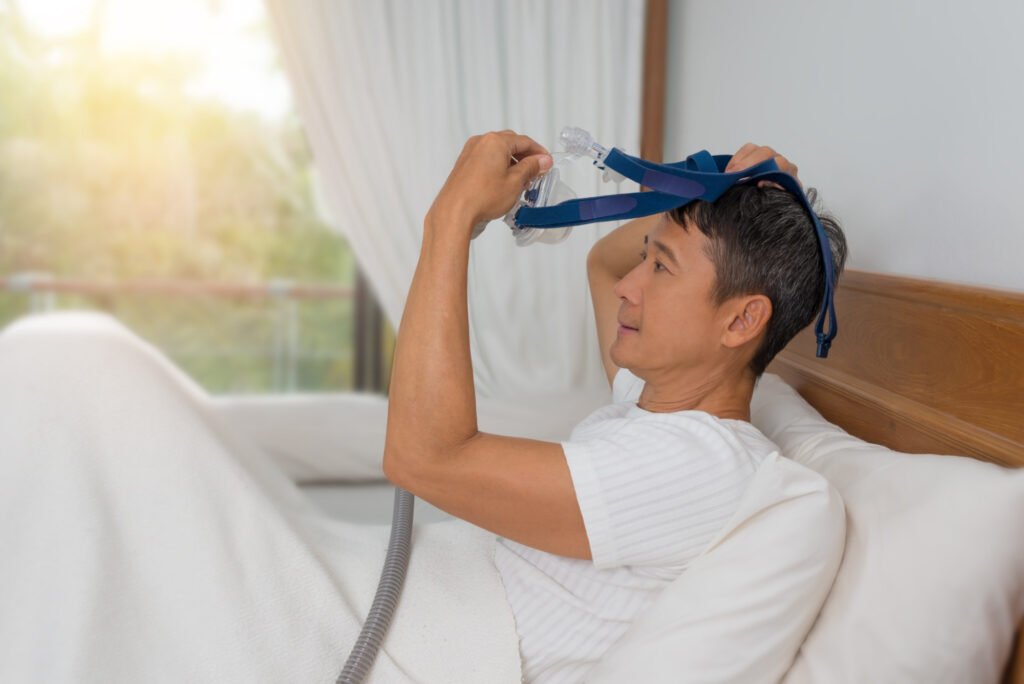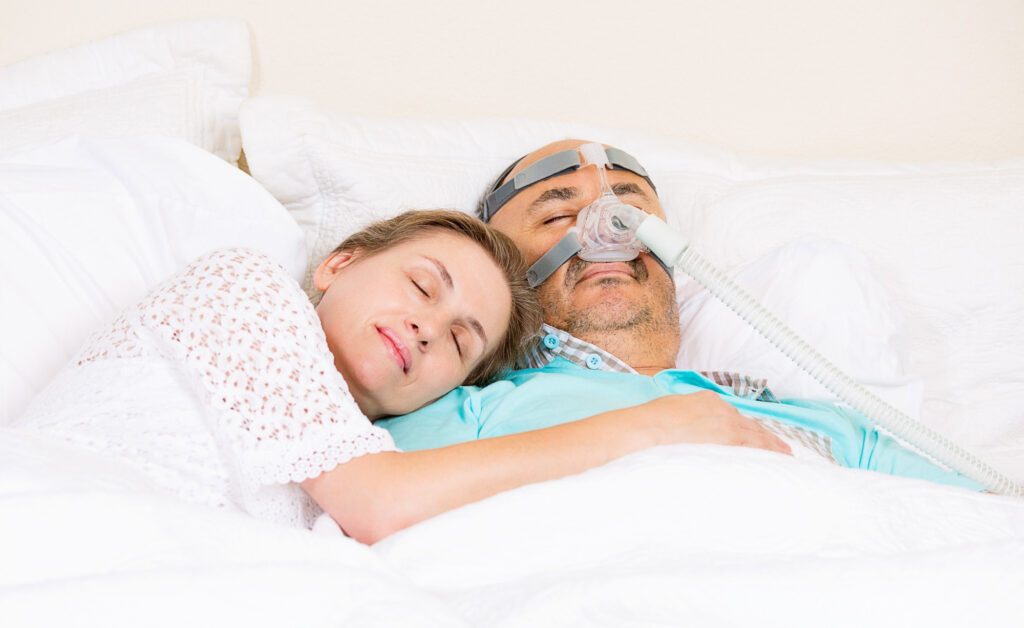“A ruffled mind makes a restless pillow.” – Charlotte Brontē
Did you know? … “In the United States, around 50–70 million people have a sleep disorder. This is in addition to the more than 100 million Americans who report not getting enough sleep.” – Cleveland Clinic
OSA and insomnia are both common sleep disorders. “In a large population-based study of people with OSA, 16% had sleep-onset insomnia, 59% had sleep maintenance insomnia, and 28% had early morning awakenings.” – 2020 study published by NIH, Sleep Apnea and Insomnia (https://pmc.ncbi.nlm.nih.gov/articles/PMC8129729/)
Why Mindfulness?
When it comes to better health, many prefer utilizing alternative solutions or complimenting traditional health therapies with wholistic ones. Due to unwanted side effects, drug interactions and poor results in traditional treatments, many individuals with insomnia are now turning to complementary and alternative medicine (CAM) to relieve their sleep problem.
Mindfulness is not only free and accessible, but evidence shows that mindfulness can help lower blood pressure, improve sleep, and even assist in managing pain. Evidence based studies have shown that Mindfulness can provide a measure of relief to an age-old problem of poor-quality sleep and even more serious: Obstructive Sleep Apnea, Periodic Limb Movement Disorder, Restless Leg Syndrome, Insomnia, Parasomnias and Narcolepsy.
What is Mindfulness?
Mindfulness is defined as “awareness that arises through paying attention, on purpose, in the present moment, non-judgmentally. And then I sometimes add, in the service of self-understanding and wisdom.” – Jon Kabat-Zinn, Ph. D. is Professor of Medicine emeritus at the University of Massachusetts Medical School, and founder of Mindfulness-Based Stress Reduction
In other words, mindfulness is the practice of being fully present, or completely in the present moment, paying attention to our thoughts, emotions, physical sensations, and the world around us, with a compassionate and non-judgmental attitude. It also involves acceptance—observing our thoughts and feelings without labeling them as good or bad. In mindfulness, we focus on the here and now, rather than dwelling on the past or worrying about the future.

“Mindfulness is awareness of one’s internal states and surroundings. Mindfulness can help people avoid destructive or automatic habits and responses by learning to observe their thoughts, emotions, and other present-moment experiences without judging or reacting to them Mindfulness is awareness of one’s internal states and surroundings. Mindfulness can help people avoid destructive or automatic habits and responses by learning to observe their thoughts, emotions, and other present-moment experiences without judging or reacting to them.” – American Psychological Association
How can Mindfulness Affect Sleep Disorders?
Let’s dive deep into what the medical community has proven through research-based studies:
“For many chronic illnesses, mindfulness meditation seems to improve quality of life and reduce mental health symptoms,” says Dr. Zev Schuman-Olivier of Harvard University. (https://newsinhealth.nih.gov/2021/06/mindfulness-your-healthhttps://newsinhealth.nih.gov/2021/06/mindfulness-your-health)
“Additionally, there was moderate strength of evidence that mindfulness meditation interventions significantly improved sleep quality compared with nonspecific active controls at post-intervention. These preliminary findings suggest that mindfulness meditation may be effective in treating some aspects of sleep disturbance. Findings from the study showed that the meditation-based treatments (MBSR or MBTI) provided improvement by significantly reducing total wake time and pre-sleep arousal.” – 2019 NIH Study, The Effect of Mindfulness Meditation on Sleep Quality (https://pmc.ncbi.nlm.nih.gov/articles/PMC6557693/)

“We have been developing an adaptation of MBSR tailored specifically to insomnia that is called mindfulness-based therapy for insomnia (MBTI), which is a meditation-based program that integrates behavioral techniques for insomnia. The conceptual basis for MBTI is to improve sleep and daytime functioning by reducing hyperarousal, a prominent waking correlate that develops during the course of chronic insomnia. In contrast to CBTI that is primarily aimed at changing thoughts and behaviors to reduce unwanted wakefulness at night, MBTI is aimed at shifting metacognitions to reduce sleep-related arousal at night and during the day through mindfulness meditation practice.” – 2014 NIH Study, A Randomized Controlled Trial of Mindfulness Meditation for Chronic Insomnia (https://pmc.ncbi.nlm.nih.gov/articles/PMC4153063/)
The same 2014 study concluded that, “Mindfulness meditation appears to be a viable treatment option for adults with chronic insomnia and could provide an alternative to traditional treatments for insomnia.”
How can you Practice Mindfulness with a Specific Approach to Better Sleep?
Let’s turn to an MBSR facilitator and expert for answers to this question. Audrey A. Simmons MBA, MS, BSN, RN, PMH-BC, ACC , is an MBSR Trained Facilitator who has received mindfulness training and coaching through the University of California at San Diego and Brown University.
She has been facilitating MBSR 8-week courses for nearly a decade, and according to her website, “It is the most well-researched meditation program in existence, showing results of reducing blood pressure, chronic pain, increasing quality sleep, decreasing stress, among other health benefits.”
So, when the team at Everything Sleep Idaho asked her about the connection of how mindfulness can assist sleep quality, she explained it to us this way:
“Practicing mindfulness helps us access the relaxation response—a state that counteracts the fight-or-flight reaction. In this state, heart rate slows, blood pressure decreases, and muscle tension eases. Cultivating the ability to engage this response enhances our ability to approach challenging situations with greater calm and clarity. For instance, when faced with the frustration of sleeplessness, mindfulness allows us to shift our perspective.
“Instead of reacting with agitation, we can notice the thought: ‘I’m thinking about not being able to sleep. I’ve experienced this before.’ With this awareness, we can consciously choose to redirect our focus to the rhythm of our breath—attending to the mechanics of each inhalation and exhalation—and intentionally release tension that no longer serves us in the moment.
“In addition, dedicating just 20 minutes to mindfulness at any point during the day can significantly support well-being. This practice gives the body an intentional pause to release tension it might still be holding—something we often neglect until collapsing into bed at night. Waiting until bedtime to finally unwind can make it harder to fall asleep, highlighting the importance of mindful pauses throughout the day.”
Practical Nighttime Techniques to Improve Sleep with a Mindful Approach
Here are some practical and user-friendly techniques recommended by Mindful.org
- Say goodnight to your devices: It’s proven that a phone or tablet lighting up your bedside table can disturb your sleeping patterns due to their emission of blue light, which affects your brain by increasing alertness and reducing levels of sleep-inducing melatonin.
- Don’t force it: The pressure of trying to fall asleep could have an adverse effect and heighten feelings of stress, as they say, “Let it go.” By practicing mindfulness, letting go of the anxiety of being awake, sleep will usually come naturally.
- Instead, encourage positive distractions: Focusing your attention on how you can’t get to sleep will only make sleep more difficult. Instead, mindfulness experts recommend distracting yourself with “interesting and engaging imagery,” involving as many of your senses as possible. Visualize calming and pleasant scenes, like a peaceful beach, a lush forest, or a cozy cabin, including details like sights, sounds, and smells.
- Allow worrisome thoughts: If you’re unable to sleep because you’re fixated on something stressful that’s happening, don’t try to force it out of your mind but consider what happens after the big event, realizing that the panic or stress will pass. So instead of replaying the worst parts over and over, imagine yourself returning to normal life once the stressful situation is over.
- Also, focus on gratitude: Focusing on the good can evoke pleasant emotions and help soothe you to sleep. Instead of worrying over what might go wrong, focus on something you are looking forward to and things in your life that you are grateful for.
- Practice nightly mindfulness: Consistency is key. Mindfulness for sleep is even more effective when practicing it regularly.
- Try a body scan meditation once you are settled in bed for the evening: Body scans are effective mindfulness meditations for sleep. When we allow ourselves to be with what’s here, the body naturally goes to rest, which is what it wants to do.
PRACTICE SESSION: Here’s a sample Body Scan with MBSR founder Jon Kabat-Zinn:
How can Mindfulness Improve Adherence and Sleep Quality for CPAP Users?
CPAP (Continuous Positive Airway Pressure) therapy is a common treatment for obstructive sleep apnea. Nightly therapy using a CPAP machine improves sleep quality, better health and quality of life in people with OSA. However, sleeping with a mask on and a machine beside you can take some getting used to. Individuals with OSA who report feeling claustrophobic or anxiety while wearing a CPAP mask are less likely to adhere to consistent treatment.
Mindfulness practices, particularly meditation, can help CPAP patients by increasing their awareness of their sleep patterns, reducing anxiety related to using the CPAP machine, improving acceptance of the treatment, and ultimately leading to better adherence to CPAP therapy. A mindful approach will help them focus on the positive benefits of using it, rather than the discomfort or inconvenience. Let’s examine the research on how mindful meditation can improve adherence of CPAP therapy:

People with OSA who report feeling claustrophobic with a CPAP mask are less likely to stick to regular treatment.
“CPAP adherence prediction studies have provided critical insight to factors that are not only predictive of the behavior, but also amenable to intervention. From the early intervention studies that have addressed supportive, educational, and cognitive behavioral strategies, combination interventions may be most influential on adherence outcomes.” – 2010 study published by NIH, Adherence to Continuous Positive Airway Pressure Treatment for Obstructive Sleep Apnea: Implications for Future Interventions (https://pmc.ncbi.nlm.nih.gov/articles/PMC2972705/)
Since CPAP therapy remains the gold standard for sleep apnea treatment, and compliance is such an important part of therapy, NIH published a review to see if mindfulness may be used as an adjunct method to increase CPAP adherence in OSA patients:
“The study concluded that mindfulness could serve as a novel approach to promote CPAP adherence in OSA patients by reducing emotional distress and increasing subjective well-being. And since controlled trials have not been performed yet, future research should continue to investigate the role of mindfulness-based interventions in CPAP treatment adherence.” – 2013 NIH Study, Adherence to CPAP Treatment: Can Mindfulness Play a Role? (https://pmc.ncbi.nlm.nih.gov/articles/PMC9960813/#sec6-life-13-00296)
A meditation practice can help people with sleep apnea fall asleep more easily and have a better experience with their CPAP treatment.
“Meditation, especially mindfulness-based meditation, can help people understand how CPAP treatment benefits their sleep, mood, and energy. Because of this increased self-awareness, meditation can help people with OSA continue their treatment compared to patients who may not pay attention to the benefits of treatment. Having an awareness of the body, mind, and thoughts that come up while using a CPAP machine can allow the person to feel in control of their experience. Building self-awareness through meditation can give people the ability to shift their mindset, work through the discomfort of wearing a mask, and allow them to continue CPAP treatment regularly.” – Valerie Cacho, MD, a sleep specialist in Ewa Beach, Hawaii, 2024 study published by NCOA, Sleepless With Sleep Apnea? Meditate On It (https://www.ncoa.org/adviser/sleep/meditation-for-sleep-apnea)

Conclusion
From the formal studies conducted thus far on the subject, it’s evident that mindfulness practices can aid in improving the quality of sleep, as well as assist those struggling to use their CPAP device. Mindfulness can significantly improve sleep quality by helping to calm the mind, reduce stress, and address the underlying factors contributing to sleep difficulties.
If you suspect you have obstructive sleep apnea (OSA) or another sleep disorder, taking the right steps is essential for effective diagnosis and treatment. That first step is diagnosis, so it’s imperative to consult your healthcare professional for an initial evaluation and subsequent referral to a sleep physician who can offer a more in-depth analysis.
For nearly 20 years, Dr. Mark Rasmus, Medical Director of Everything Sleep Idaho, has been dedicated to public education about sleep matters. He is board certified in pediatrics, internal medicine, pulmonary medicine, critical care and sleep medicine. Everything Sleep Idaho provides comprehensive diagnosis and treatment of all Sleep Disorders in adults and children.








